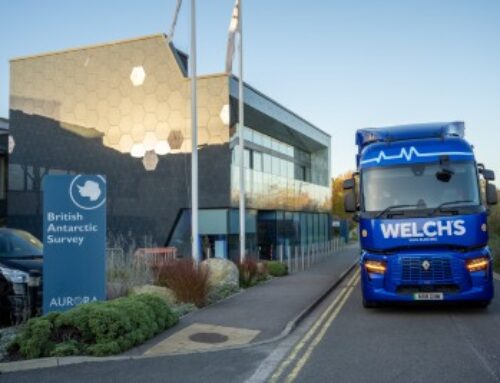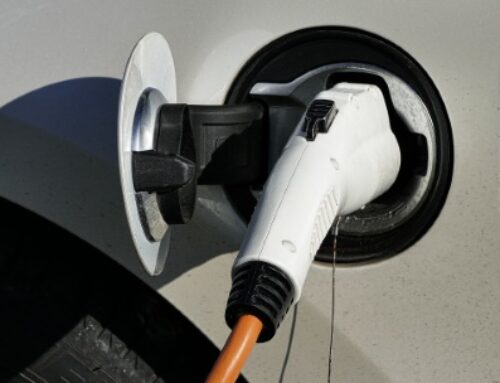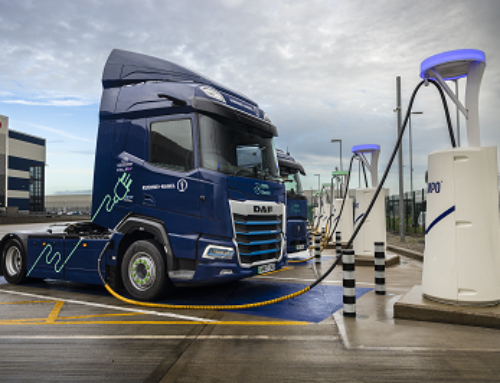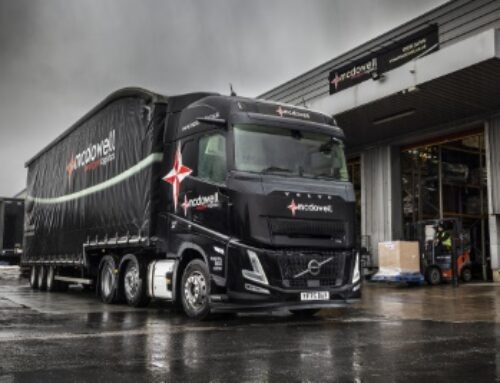UK’s first hydrogen bus refuelling station opens
The city of Aberdeen is now home to the UK’s first commercial-scale hydrogen production and bus refuelling station, which was officially opened on 11 March.
The station is situated at Aberdeen City Council’s Kittybrewster depot, and is owned and operated by industrial gas supplier BOC. It serves ten hydrogen fuel cell buses from PSV manufacturer Van Hool, which only emit water vapour and are said to be quieter and smoother to run than diesel vehicles.
European, UK and Scottish government funding, as well as Aberdeen City Council and private-sector backers, have contributed to the £19 million scheme. Operators Stagecoach and First, which are running six and four of the hydrogen buses respectively, have contributed a total of £2m to the project, while BOC has invested £1m in the production and refuelling station.
Regional newspaper the Press and Journal has reported that the hydrogen fleet suffered two breakdowns shortly after the launch. One of the incidents was reportedly due to a fuel issue, resulting in the vehicle being towed and a request for manufacturer checks on the remainder of the buses. But a council spokesperson defended the scheme, attributing the ‘hiccups’ to “expected… early teething problems.”
Van Hool NV CEO Filip Van Hool said the manufactuer was: “very proud to be an intrinsic part of the Aberdeen Hydrogen Bus Project, the largest fuel cell bus deployment in all of Europe.
“We congratulate the team on this achievement and the professionalism with which it was accomplished, despite the many challenges. Operated by First and Stagecoach in a very demanding service in Scotland, it will show the degree of readiness of the technology and constitute a benchmark for projects to come. We are all looking forward to the benefits of zero emission buses in real life operation.”
Steve Walker, managing director of Stagecoach North Scotland, said: “The launch of this project is great news for our customers who will be able to travel on even greener vehicles than before. We are committed to reducing the impact of our operations on the environment through a number of measures including alternative fuels, energy efficiency, increased recycling and reduced water consumption and we will continue to work to further reduce our carbon footprint in the months and years to come.”
First Aberdeen managing director David Phillips added: “The hydrogen buses complement our £4.3m investment last year in 26 micro-hybrid vehicles, one of the world’s most fuel-efficient buses. We are working hard to improve services and encourage more people out of their cars and on to the bus. Investment in environmentally friendly, state-of-the-art vehicles is key to our strategy, with the hydrogen buses very much our flagships.”
City Council leader, Councillor Jenny Laing, said: “As a leading world energy city determined to anchor the renewables industry in the North-east of Scotland, the success of the Aberdeen Hydrogen Bus Project is a real coup.
“We’ve got a lot to be proud of: we not only have Europe’s largest fleet of hydrogen fuel cell buses running on the streets of Aberdeen, but we also have the UK’s first and largest hydrogen production and bus refuelling station, with plans in place for further hydrogen stations which will be capable of fuelling other vehicles, including cars. “
Meanwhile, BOC director of bulk and packaged gases, Nathan Palmer, said his firm was: “now ready for its next project on the hydrogen highway. We want to work with other committed partners delivering a step-change in the reduction of greenhouse gas emissions in the UK.”













